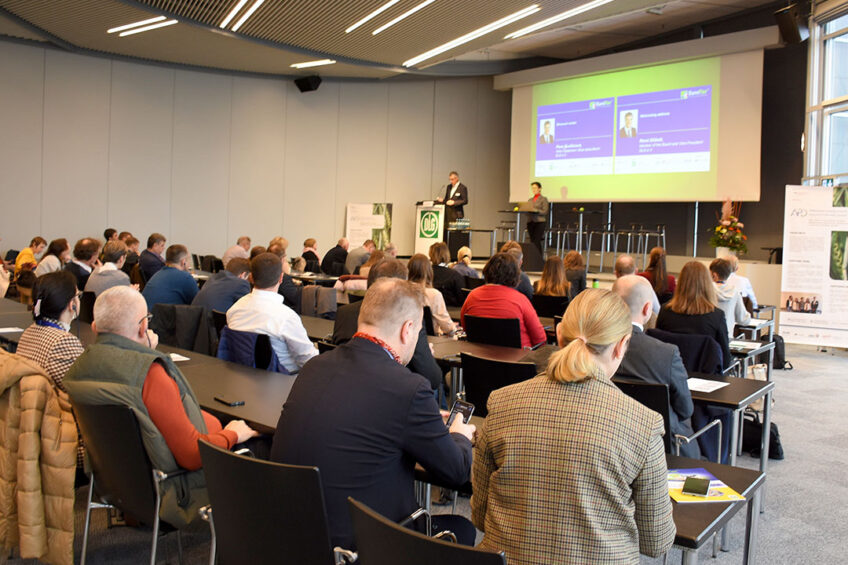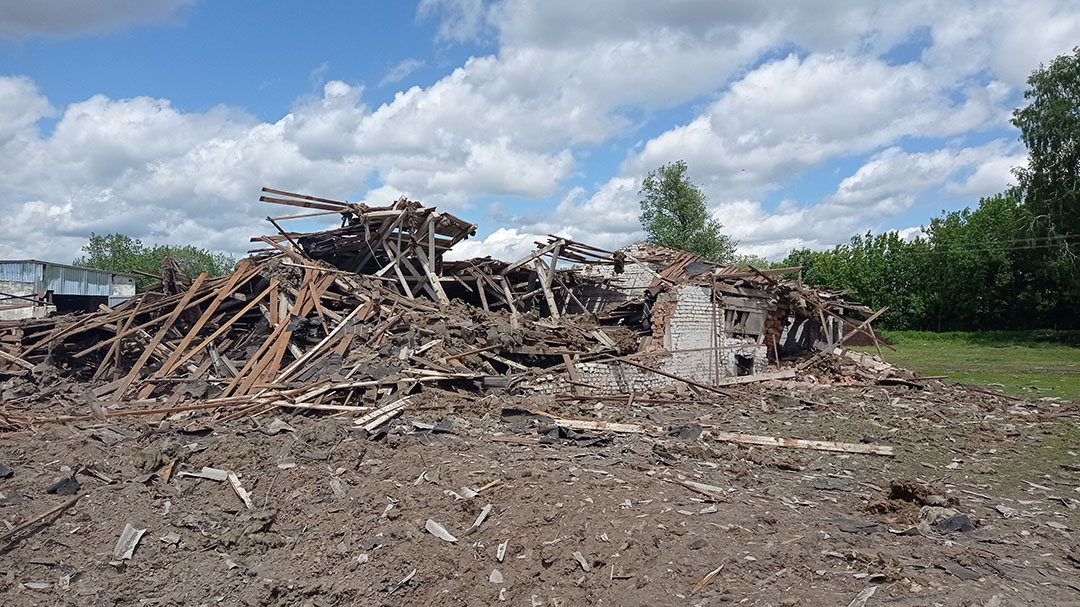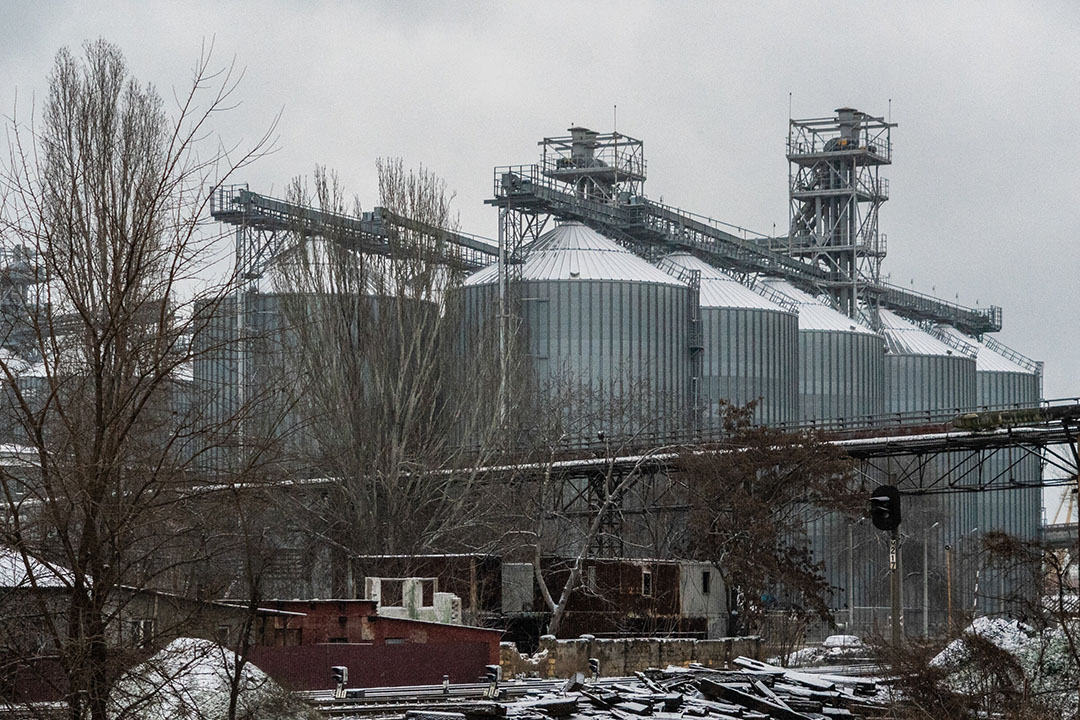Ukraine’s livestock sector needs post-war assistance

The livestock sector in Ukraine is currently suffering huge losses due to the war inflicted by Russia. At a recent meeting it became clear that Ukraine will need major global assistance to recover when the hostilities end.
The war has affected every livestock sector in Ukraine. And it is still happening, due to the constant shelling of farms and agri-businesses by the Russians. Estimates are that Ukraine will have lost around 30% of its total livestock by the time this war is over. The Ukrainians, however, have adopted a steadfast determination to rebuild.
Slow agri-export due to bombing
Prior to the war the agricultural sector in Ukraine contributed over 17% of its GDP and earned the country over 40% of its foreign exchange income. However, since the war began, agri-exports from Ukraine have been very slow since the Russians bombed key ports. That scenario is improving, with a permitted export corridor currently operational to enable the shipment of grain and other products to leave Ukraine. This allows the export of 1.5 to 2 million tonnes per month, significantly down from the pre-war figure of 6 to 7 million tonnes per month.
During the EuroTier trade fair in Germany in November 2022, a number of stakeholder meetings were held to show support for Ukraine. They outlined the current situation of the agricultural industry there and the plans in place to revive it.
Current situation of livestock sector Ukraine
The Ukrainian Ministry of Agrarian Policy and Food estimates the agricultural sector alone has already lost US$ 40 billion. A number of Ukrainian agri-associations presented a ‘Marshall Plan’ to an audience of farmers for roundtable talks.
The meeting was organised by the UAC, the Association of Milk Producers, the Association of Ukrainian Pig Breeders and the charity fund SAVEUA. All of them are calling for the prioritisation of significant investment in the agricultural sector once the war is over.
Andriy Dykun, chairman of the UAC and founder of the SAVEUA Charitable Foundation, explained the current dire situation of the Ukrainian livestock sector. He said: “Today, farmers who have animal husbandry are more or less surviving in Ukraine. The war has proved to everyone how important it is to produce products with added value. Animal husbandry provides an opportunity; large agrarian companies have already begun to think about it,” he said.
He added, “I predict that the recovery of Ukrainian animal husbandry after the war will be extremely rapid. But we need European and American processing technologies, as well as an understanding of who our partners will be.”

Agri-export potential not at full capacity
Dykun said that because of the war, Ukraine’s agri-export potential is not operating at full capacity. He urged partners to help them produce more value-added products and focus on the development of processing. He added: “This is already a definite agreement between the agricultural community and the Ukrainian government. We have convinced the authorities that the agricultural sector is a priority, as it can support the country’s economy and provide jobs”.
Given the current losses and prospects for the agricultural sector, investments for recovery will need to be in the order of tens of billions of dollars. As Hanna Lavreniuk, director general of the Association of Milk Producers (AMP) noted, it is all necessary.
“The total losses of the agricultural sector amount to almost US$ 40 billion, of which direct losses are US$ 6.6 billion. With US$ 2.8 billion for agricultural machinery, more than US$ 1.5 billion for production facilities and more than US$ 1.5 billion for livestock complexes. Arable farming and long-term plantings have lost almost US$ 4.4 billion. This is the situation we are in now. In addition, the agricultural sector has suffered more than US$ 35 billion in indirect losses. This is profit lost as farmers could not harvest and sow a new crop. They further lost revenues from the sale of products,” she said.
Restoring the livestock sector in Ukraine
So how can the agricultural sector in Ukraine be restored? All the Ukrainian agrarian associations are convinced that the agricultural sector should be restored in stages. Vice-president of the AMP, Lyubomyr Dykun, said that the first stage should be implemented during the active phase of the war, with urgent support needed for Ukrainian producers.
“In particular, this includes charitable material support provided to enterprises in the occupied territories that have lost livestock as a result of the hostilities, for the purchase of breeding animals and assistance for the repair of damaged facilities and destroyed equipment. It is extremely important to provide agricultural enterprises with generators for uninterrupted operation, veterinary medicines, vaccines, premixes, feed additives and hygiene products for animals, and so on,” he said.
The second phase of the Marshall Plan includes technical support projects, such as the reconstruction of farms, mine clearance of agricultural land, the purchase of breeding livestock and services provided to agricultural enterprises.

Investment in development
The third phase will directly shape Ukraine’s industry, with investments directed towards the development of processing, cooperatives and the construction of agricultural research and education institutions.
“It is equally important to educate specialists and encourage young people to work in the agricultural sector. To do this, it is necessary to create and build a Ukrainian Agrarian University,” Dykun added.
Cooperation with a number of international partners such as the FAO, USAID and the Swiss government is ongoing to implement several projects to support agricultural enterprises affected by the war.
 Beheer
Beheer




 WP Admin
WP Admin  Bewerk bericht
Bewerk bericht